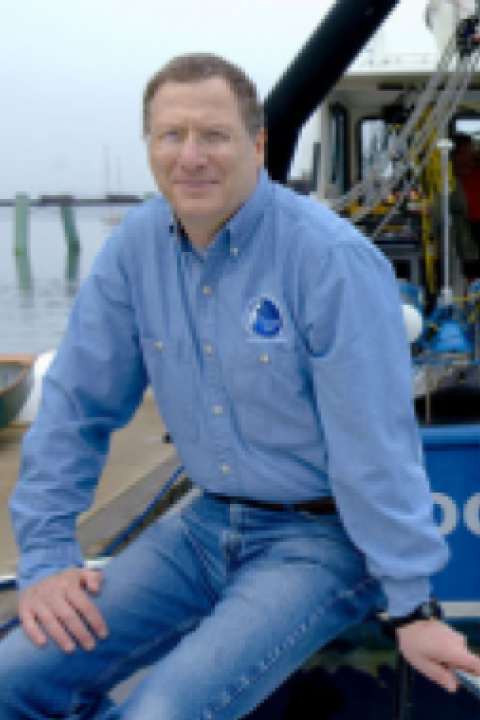The Oceanography minor at UNH provides a comprehensive foundation in biological, chemical, physical, and geological oceanography. You'll explore marine systems, including oceans, estuaries, and the atmosphere, through courses in marine biology, climate, pollution, and more. Complement your major in science, education, or business to prepare for careers in research, government, or industry. With access to state-of-the-art facilities like the Jackson Estuarine Laboratory and Chase Ocean Engineering Lab, you'll gain valuable hands-on experience.
What is oceanography?
Are you interested in the environment around you, and does a career related to marine science appeal to you? Do your interests lie in the aquatic realm, specifically the marine systems that include oceans, estuaries and the atmosphere? The oceanography minor offers a broad foundation in biological, chemical, physical and geological oceanography, with the opportunity to explore courses in marine biology, botany, ecology and evolution,aquaculture,climate, pollution and more. Combine this minor with a major in the sciences, education or business to prepare for career opportunities in research, government, education, industry or business.
Why study oceanography at UNH?
Students in the oceanography program at UNH work with faculty who span the major disciplines of oceanography. Marine facilities at UNH include the Jackson Estuarine Laboratory, Coastal Marine Facility and vessels, the Shoals Marine Lab on Appledore Island, and a variety of research space in the Chase Ocean Engineering Laboratory, Ocean Processes Analysis Laboratory, Earth Sciences and Biological Sciences Departments, and the Center for Coastal and Ocean Mapping, a Joint Hydrographic Center with NOAA.
Potential career areas
- Business
- Consulting firms
- Education
- Government research (NOAA/NRL/USGS/USACE)
- Science journalism
- State regulatory agencies
Curriculum & Requirements
The minor in oceanography is available to students interested in obtaining a broad background in oceanography.
All courses in the program are selected in consultation with the oceanography minor advisor, Dr. Jamie Pringle, (603) 862-5000.
Academic policies related to Minors.
Credit toward the minor will only be given for courses passed with C- or better, and a 2.00 grade-point average must be maintained in courses for the minor.
- Courses taken on a pass/fail basis may not be used for a minor.
- No more than 8 credits used to satisfy major requirements may be used for the minor.
- No more than 2 courses or 8 credits may be from transfer coursework. Any transferred coursework must be approved by the minor coordinator.
For additional details on how to declare a minor, please visit https://www.unh.edu/registrar/academic-records/majors-minors.
| Code | Title | Credits |
|---|---|---|
| Required Courses | ||
| ESCI 501 | Introduction to Oceanography | 4 |
| Select two of the following: | 6-8 | |
ESCI 752 | Chemical Oceanography | |
ESCI 758 | Introductory Physical Oceanography | |
ESCI 759 | Geological Oceanography | |
MEFB 755 | Biological Oceanography | |
| Select two of the following: 1 | 6-8 | |
MEFB 401 | Marine Estuarine and Freshwater Biology: Freshmen Seminar | |
MEFB 403 | Investigative Marine Biology Laboratory | |
MEFB 503 | Introduction to Marine Biology | |
MEFB 508 | Marine Ecosystem Research and Management | |
MEFB 530 | Evolution and Marine Diversity | |
MEFB 535 | Marine Mammal Biology | |
MEFB 625 | Introduction to Marine Botany | |
MEFB 674 | Ecology and Marine Environment | |
MEFB 702 | Sustainable Marine Fisheries | |
MEFB 725 | Marine Ecology | |
MEFB 754 | Anatomy and Function of Marine Vertebrates | |
CEE 722 | Introduction to Marine Pollution and Control | |
ESCI 502 | Beaches and Coasts | |
ESCI 514 | Introduction to Climate | |
ESCI 701 | Quantitative Methods in Earth Sciences | |
ESCI 720 | Ocean Measurements Lab | |
ESCI 747 | Aqueous Geochemistry | |
ESCI 754 | Sedimentology | |
ESCI 756 | Geotectonics | |
ESCI 765 | Paleoclimatology | |
ESCI/OE 771 | Positioning for Ocean Mapping | |
OE 490 | Introduction to Ocean Engineering | |
OE 610 | Ocean Instrumentation Lab | |
OE 753 | Ocean Hydrodynamics | |
OE 754 | Ocean Waves and Tides | |
OE 757 | Coastal Engineering and Processes | |
TECH 797 | Undergraduate Ocean Research Project | |
ZOOL 610 | Principles of Aquaculture | |
ZOOL 710 | Sharks and Bony Fishes | |
MEFB 772 | Fisheries Biology: Conservation and Management | |
MEFB 628 | Marine Invertebrate Evolution and Ecology | |
MEFB 773 | Physiology of Fishes | |
| Total Credits | at least 18 | |
- 1
Or a suitable substitute approved by the minor advisor (at least one of these courses should be in the biological sciences).













